'
Heart Care Herbal Tea | ||
|---|---|---|
| S.N. | INGREDIENTS | References and Studies on Herbs for Heart Care |
| 1 | ARJUNA BARK |
Arjuna Bark (Terminalia arjuna) Arjuna bark is well-known in Ayurveda for its cardioprotective properties, supporting heart health by strengthening heart muscles and improving coronary artery blood flow. Book Reference: The Ayurvedic Pharmacopoeia of India Research and Journals: Dwivedi, S. "Terminalia arjuna Wight & Arn.—A useful drug for cardiovascular disorders." Journal of Ethnopharmacology 114.2 (2007): 114-129. Karthikeyan, K., et al. "Therapeutic efficacy of Terminalia arjuna in chronic stable angina: A double-blind, placebo-controlled, crossover study comparing Terminalia arjuna with isosorbide mononitrate." Indian Heart Journal 55.2 (2003): 123-129. |
| 2 | ASHWAGANDHA |
Ashwagandha (Withania somnifera) Ashwagandha helps reduce stress and inflammation, which are significant risk factors for heart disease. It supports heart health by improving the body’s ability to deal with stress. Book Reference: Adaptogens: Herbs for Strength, Stamina, and Stress Relief by David Winston and Steven Maimes Research and Journals: Chandrasekhar, K., et al. "A prospective, randomized double-blind, placebo-controlled study of safety and efficacy of a high-concentration full-spectrum extract of Ashwagandha root in reducing stress and anxiety in adults." Indian Journal of Psychological Medicine 34.3 (2012): 255-262. Singh, N., et al. "Withania somnifera (Ashwagandha): A review of the health benefits and their molecular mechanisms." Journal of Nutrition & Food Sciences 6.1 (2016): 1-8. |
| 3 | BASIL |
Basil (Ocimum sanctum) Basil, or Tulsi, has antioxidant and anti-inflammatory properties, which help in maintaining cardiovascular health. Book Reference: Tulsi: The Mother Medicine of Nature by Narendra Singh, Rajeev Krishna Singh Research and Journals: Prakash, P., et al. "Ocimum sanctum (Tulsi): A review of phytochemical and pharmacological properties." Indian Journal of Natural Products and Resources 1.2 (2010): 125-132. Mondal, S., et al. "Scientific validation of the ethnomedicinal properties of Tulsi (Ocimum sanctum L.): A review." International Journal of Life Sciences and Pharma Research 2.2 (2012): 37-43. |
| 4 | CARDAMOM |
Cardamom (Elettaria cardamomum) Cardamom has been shown to lower blood pressure and improve heart function, acting as a vasodilator and diuretic. Book Reference: The Complete Guide to Herbal Medicines by Charles W. Fetrow and Juan R. Avila Research and Journals: Verma, S. K., et al. "Antioxidant and diuretic properties of cardamom (Elettaria cardamomum)." Indian Journal of Biochemistry & Biophysics 46.6 (2009): 503-506. Alsuhaibani, R. A., et al. "Effect of cardamom extract on systolic and diastolic blood pressure in hypertensive individuals." Journal of Hypertension 37 (2019): e343. |
| 5 | CINNAMON |
Cinnamon (Cinnamomum verum) Cinnamon helps lower blood cholesterol and triglycerides, reducing the risk of heart disease. Book Reference: Cinnamon and Cassia: The Genus Cinnamomum by P. N. Ravindran, K. Nirmal Babu, and M. Shylaja Research and Journals: Qin, B., et al. "Cinnamon extract prevents the insulin resistance induced by a high-fructose diet." Hormone and Metabolic Research 36.2 (2004): 119-125. Ranasinghe, P., et al. "Medicinal properties of ‘true’ cinnamon (Cinnamomum zeylanicum): A systematic review." BMC Complementary and Alternative Medicine 13.1 (2013): 275. |
| 6 | CORIANDER |
Coriander (Coriandrum sativum) Coriander has lipid-lowering effects and is beneficial in managing cholesterol levels, promoting cardiovascular health. Book Reference: Herbs: Culinary, Medicinal, Aromatic by Kathi Keville Research and Journals: Chithra, V., et al. "Hypolipidemic activity of coriander seeds (Coriandrum sativum): Mechanism of action." Indian Journal of Experimental Biology 35.6 (1997): 612-614. Khan, M. A., et al. "Antihyperlipidemic activity of Coriandrum sativum in Triton-induced hyperlipidemic rats." Journal of Ethnopharmacology 150.3 (2013): 946-948. |
| 7 | FENNEL |
Fennel (Foeniculum vulgare) Fennel supports cardiovascular health by improving blood pressure and having antioxidant properties. Book Reference: The Encyclopedia of Medicinal Plants by Andrew Chevallier Research and Journals: Baliga, M. S., et al. "A review of the chemistry and pharmacology of the herb Fennel (Foeniculum vulgare)." Food Research International 44.7 (2011): 1827-1832. Badgujar, S. B., et al. "Foeniculum vulgare Mill: A review of its botany, phytochemistry, pharmacology, contemporary application, and toxicology." Biomedicine & Pharmacotherapy 92 (2017): 1075-1089. |
| 8 | GINGER |
Ginger (Zingiber officinale) Ginger is beneficial for heart health by reducing cholesterol, improving circulation, and acting as an anti-inflammatory. Book Reference: Herbal Medicine: Biomolecular and Clinical Aspects by Iris F. F. Benzie and Sissi Wachtel-Galor Research and Journals: Al-Amin, Z. M., et al. "Anti-diabetic and hypolipidemic properties of ginger (Zingiber officinale) in streptozotocin-induced diabetic rats." British Journal of Nutrition 96.4 (2006): 660-666. Bhandari, U., et al. "Effect of ethanolic extract of Zingiber officinale on dyslipidemia in diabetic rats." Journal of Ethnopharmacology 97.2 (2005): 227-230. |
| 9 | TEA |
Tea Leaves (Camellia sinensis) Tea leaves, especially green tea, have been shown to improve heart health by lowering cholesterol and blood pressure and providing antioxidants. Book Reference: Green Tea: The Natural Secret for a Healthier Life by Nadine Taylor Research and Journals: Kuriyama, S., et al. "Green tea consumption and mortality due to cardiovascular disease, cancer, and all causes in Japan: The Ohsaki study." JAMA 296.10 (2006): 1255-1265. Bogdanski, P., et al. "Green tea extract reduces blood pressure, inflammatory biomarkers, and oxidative stress and improves parameters associated with insulin resistance in obese, hypertensive patients." Nutrition Research 32.6 (2012): 421-427. |
| 10 | GUDUCHI |
Guduchi (Tinospora cordifolia) Guduchi is known for its anti-inflammatory and antioxidant properties, which help protect the heart and improve overall cardiovascular health. Book Reference: Ayurvedic Herbs: A Clinical Guide to the Healing Plants of Traditional Indian Medicine by Virginia M. Tyler, M. Foster Research and Journals: Upadhyay, A. K., et al. "Tinospora cordifolia (Willd.) Hook. f. and Thoms. (Guduchi) – Validation of the Ayurvedic pharmacology through experimental and clinical studies." International Journal of Ayurveda Research 1.2 (2010): 112-121. Sharma, U., et al. "Antioxidant activity and hepatoprotective potential of Tinospora cordifolia in combination with Andrographis paniculata in diabetic rats." Indian Journal of Experimental Biology 46.9 (2008): 583-590. |
| 11 | HIBISCUS |
Hibiscus (Hibiscus sabdariffa) Hibiscus is beneficial for lowering blood pressure and cholesterol levels, promoting cardiovascular health. Book Reference: Hibiscus: The Genus Hibiscus by Victor R. Preedy Research and Journals: Hopkins, A. L., et al. "Hibiscus sabdariffa L. in the treatment of hypertension and hyperlipidemia: a comprehensive review of animal and human studies." Fitoterapia 84 (2013): 577-584. McKay, D. L., et al. "Hibiscus sabdariffa L. tea (tisane) lowers blood pressure in prehypertensive and mildly hypertensive adults." Journal of Nutrition 140. |
| 12 | MORINGA |
Moringa (Moringa oleifera) Moringa is known for its cardio-protective properties, including reducing blood pressure and cholesterol levels. Book Reference: Moringa: Nature's Medicine Cabinet by Sanford Holst Research and Journals: Mbikay, M. "Therapeutic potential of Moringa oleifera leaves in chronic hyperglycemia and dyslipidemia: a review." Frontiers in Pharmacology 3 (2012): 24. Leone, A., et al. "Moringa oleifera seeds and oil: Characteristics and uses for human health." International Journal of Molecular Sciences 16.6 (2015): 12791-12835. |
| 13 | TURMERIC |
Turmeric (Curcuma longa) Turmeric's active compound, curcumin, is known for its anti-inflammatory and antioxidant properties, which are beneficial for heart health. Book Reference: Turmeric: The Ayurvedic Spice of Life by David Frawley and Prashanti de Jager Research and Journals: Aggarwal, B. B., et al. "Curcumin: the Indian solid gold." Advances in Experimental Medicine and Biology 595 (2007): 1-75. Gupta, S. C., et al. "Multitargeting by curcumin as revealed by molecular interaction studies." Natural Product Reports 28.2 (2011): 193-209. |
| 14 | RHODODENDRON |
Rhododendron (Rhododendron arboreum) Rhododendron is used in traditional medicine for its cardiovascular benefits, including its ability to lower blood pressure and improve heart function. Book Reference: Medicinal Plants of India by Indian Council of Medical Research Research and Journals: Chauhan, P., et al. "Pharmacological and therapeutic potential of Rhododendron arboreum." Journal of Ethnopharmacology 258 (2020): 112791. Singh, S. P., et al. "Traditional uses, phytochemistry and pharmacology of Rhododendron arboreum: A review." International Journal of Pharmaceutical Sciences Review and Research 23.2 (2013): 51-58. |
| 15 | STEVIA |
Stevia (Stevia rebaudiana) Stevia is recognized for its ability to help manage blood sugar levels and its potential benefits in reducing blood pressure, both of which are beneficial for heart health. Book Reference: The Stevia Story: A Tale of Incredible Sweetness & Intrigue by Linda Bonvie, Bill Bonvie, and Donna Gates Research and Journals: Chatsudthipong, V., et al. "Stevioside and related compounds: Therapeutic benefits beyond sweetness." Pharmacology & Therapeutics 121.1 (2009): 41-54. Goyal, S. K., et al. "Stevia (Stevia rebaudiana) a bio-sweetener: A review." International Journal of Food Sciences and Nutrition 61.1 (2010): 1-10. |
-
10% OFF
Sale!
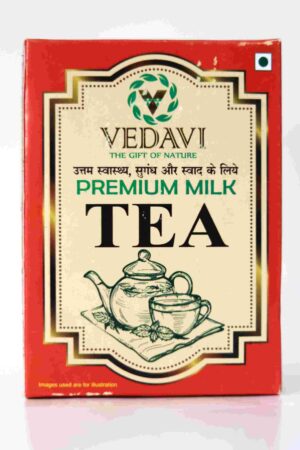
Premium Milk Tea
₹250.00₹225.00 -
1% OFF
Sale!
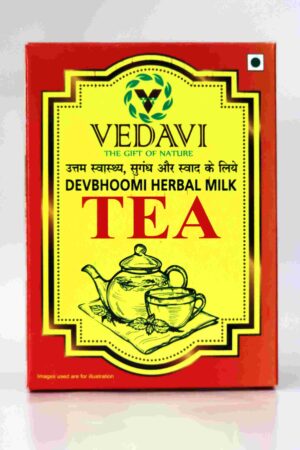
Devbhoomi Herbal Milk Tea
₹350.00₹345.00 -
10% OFF
Sale!
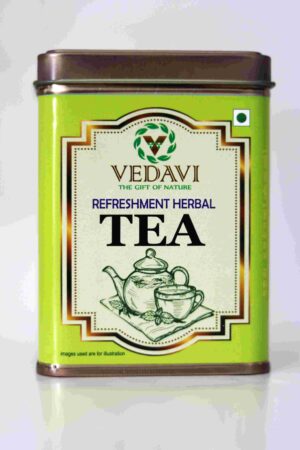
Refreshment Herbal Tea
₹650.00₹585.00 -
10% OFF
Sale!
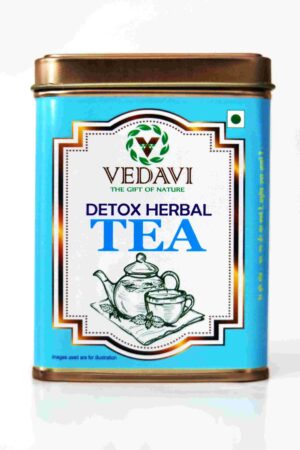
Detox Herbal Tea
₹650.00₹585.00 -
2% OFF
Sale!
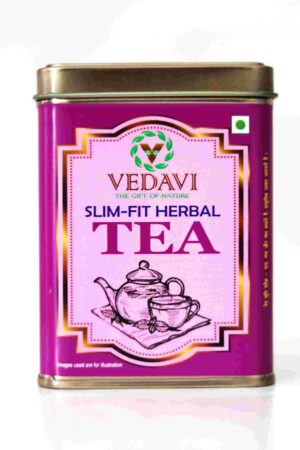
Slim-Fit Herbal Tea
₹650.00₹635.00 -
10% OFF
Sale!
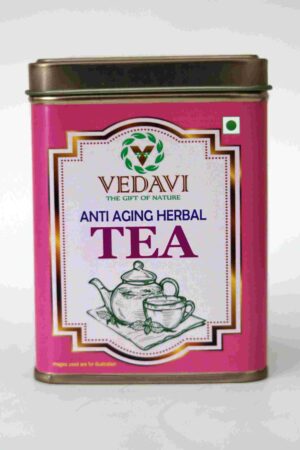
Anti Aging Herbal Tea
₹650.00₹585.00 -
2% OFF
Sale!
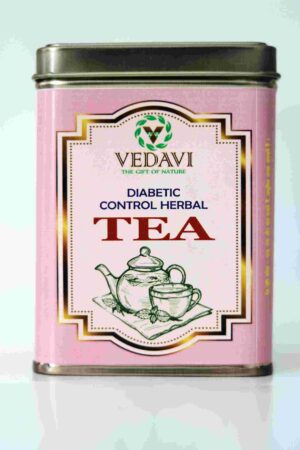
Diabetic Control Herbal Tea
₹650.00₹635.00 -
2% OFF
Sale!
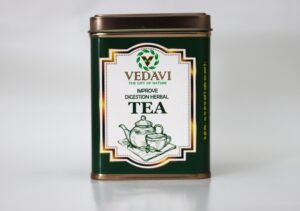
Improve Digestion Herbal Tea
₹650.00₹635.00 -
10% OFF
Sale!
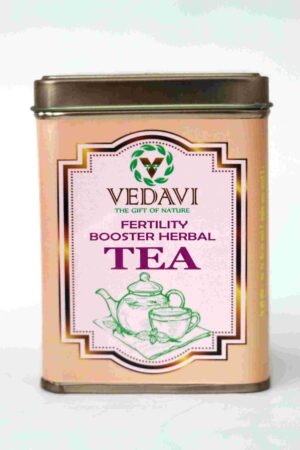
Fertility Booster Herbal Tea
₹650.00₹585.00 -
10% OFF
Sale!
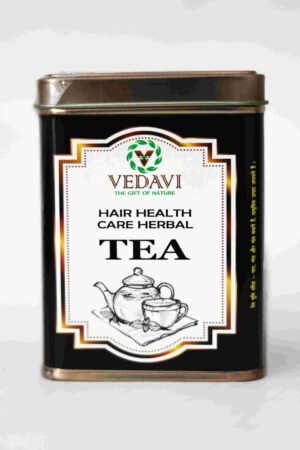
Hair Health Care Herbal Tea
₹650.00₹585.00 -
10% OFF
Sale!
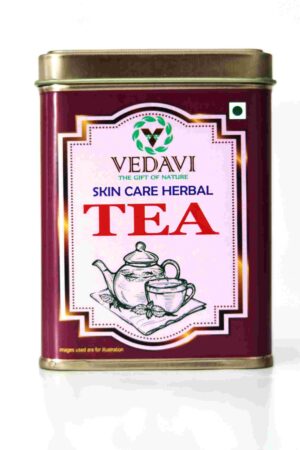
Skin Care Herbal Tea
₹650.00₹585.00 -
2% OFF
Sale!
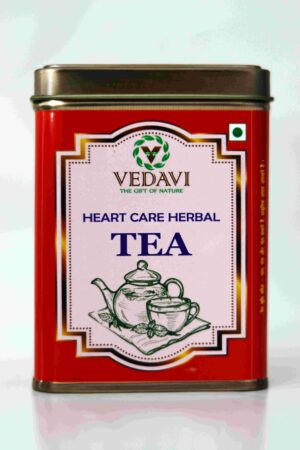
Heart Care Herbal Tea
₹650.00₹635.00 -
2% OFF
Sale!
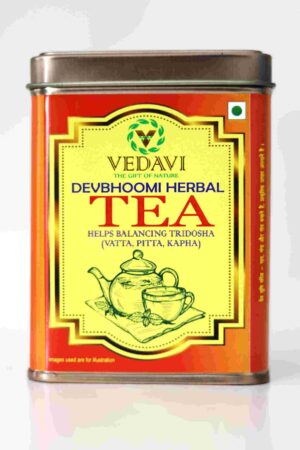
Devbhoomi Herbal Tea
₹650.00₹635.00 -
2% OFF
Sale!
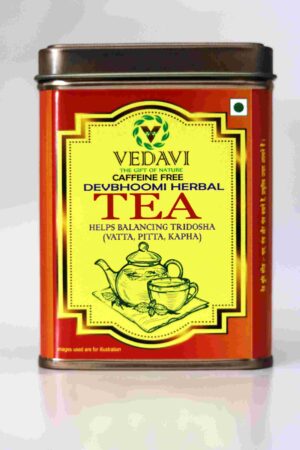
Devbhoomi Herbal Tea (Caffeine Free)
₹650.00₹635.00
